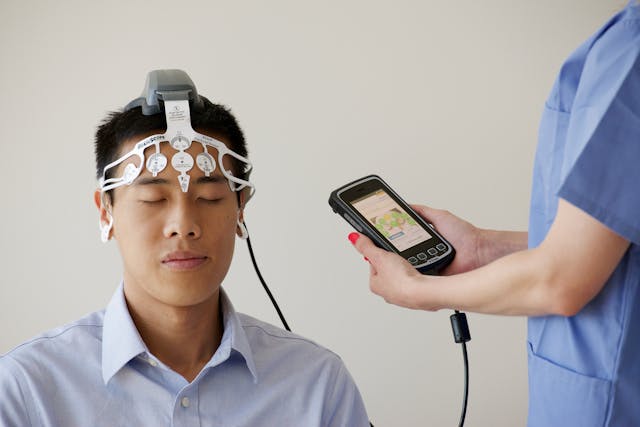A machine learning model developed by Duke Health researchers can differentiate normal cognition from mild cognitive impairment using retinal images from the eye.
The model analyzes retinal images and associated data and recognizes specific features to identify individuals with mild cognitive impairment. Publishing in the journal Ophthalmology Science, the model demonstrates the potential for a non-invasive and inexpensive method of identifying the early signs of cognitive impairment that could progress to Alzheimer’s disease.
“This is particularly exciting work because we have previously been unable to differentiate mild cognitive impairment from normal cognition in previous models,” said senior author Sharon Fekrat, M.D., professor in Duke’s departments of Ophthalmology and Neurology, and associate professor in the Department of Surgery. “This work brings us one step closer to detecting cognitive impairment earlier before it progresses to Alzheimer’s dementia.”
Fekrat and colleagues previously developed a model that used retinal scans and other data to successfully identify patients with a known Alzheimer’s diagnosis. The scans – based on optical coherence tomography (OCT) and OCT angiography (OCTA) — detected structural changes in the neurosensory retina and its microvasculature among Alzheimer’s patients.
The current study expands on that work, using machine learning techniques to detect mild cognitive impairment, which is often a precursor to Alzheimer’s. The new model identifies specific features in the OCT and OCTA images that signal the presence of cognitive impairment, along with patient data such as age, sex, visual acuity, and years of education and quantitative data from the images themselves.
The researchers reported that the model analyzed retinal pictures and images along with quantitative data to differentiate people with normal cognition from those with a diagnosis of mild cognitive impairment with a sensitivity of 79% and specificity of 83%.
- Eurekalert







